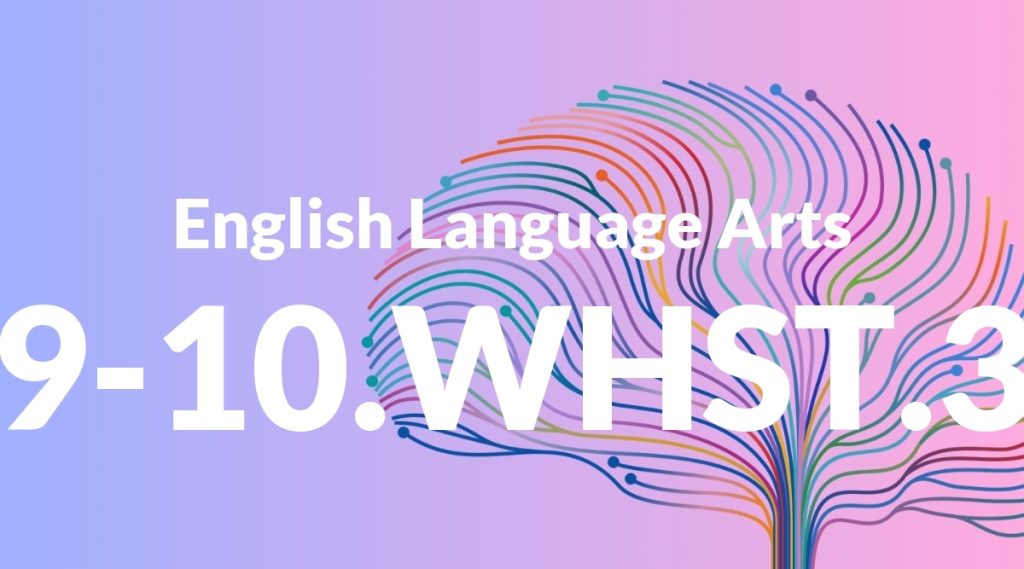Standard: 9-10.WHST.3 – (See note; not applicable as a separate requirement)
Grade level: Grade 9-10
Subject: English Language Arts
Domain: Writing: History, Science & Technical Subjects
Teacher Overview
This standard focuses on developing students’ skills in writing for history, science, and technical subjects. It is crucial as it helps students learn to communicate complex ideas clearly and effectively, which is essential for success in both academic and real-world settings. Students should be familiar with basic research methods, understand the difference between primary and secondary sources, and possess foundational writing skills.
After mastering this standard, students will be able to conduct advanced research, synthesize information from various sources, and write well-supported arguments and analyses, preparing them for higher-level academic work and professional communication.
Common Misconception 1
Students may believe that writing for history and science is the same as writing for English literature. This is incorrect because writing for history and science often requires a more structured, evidence-based approach, whereas literary writing can be more interpretive and creative.
Intervention 1
Provide examples of writing from different disciplines and engage students in comparative analysis to highlight differences in structure, purpose, and style.
Common Misconception 2
Students might think that technical writing does not require creativity or critical thinking. This misconception overlooks the fact that effective technical writing often involves presenting complex information in an engaging and accessible way.
Intervention 2
Showcase examples of technical writing that are both informative and engaging, and encourage students to practice writing that requires both clarity and creativity.
Prerequisite Knowledge
Students should have a basic understanding of research methods, the ability to distinguish between primary and secondary sources, and foundational writing skills including constructing clear and coherent sentences and paragraphs.
Subsequent Knowledge
Students will develop advanced research skills, the ability to synthesize information from multiple sources, and the capability to construct well-supported arguments and analyses in writing.
Instructional Activities
- Comparative analysis of historical documents
- Writing lab reports based on scientific experiments
- Creating technical manuals or guides
- Developing research papers on interdisciplinary topics




